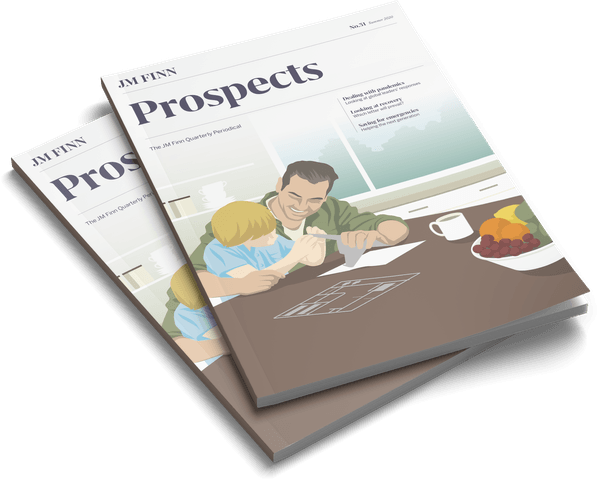If we compare the current situation and the economic effect it has had with events in the past, to some extent Covid-19 has been more significant due to its unexpectedness but also because it came at a time when markets were high and the world economy appeared to be strong.
I have been surprised at how fragile the world economy has been over the last few months, the US in particular, with unemployment there rising to 30 million in the space of a few months. Human reactions feed off each other and in a world of mass media this is certainly what has happened, and reminds me of the Franklin D Roosevelt quote: “the only thing we have to fear is fear itself.”
There are bound to be a significant number of changes and developments as a result of the pandemic, whether it be the way we travel or the way we work; for example, there might not be the same need for everybody to be in expensive offices in city centres. Drug and healthcare companies have been spending fortunes on developing vaccines and there are areas of new technologies which will continue to develop, whether it be new forms of energy, despite the low oil price today, and it is possible that those industries that do not re-engineer, may discover that they have made big mistakes.
International trade is bound to be affected by what has happened and to some extent, we will have to learn about not being so dependent, particularly with regards to food. I am not suggesting we should sever our links with the rest of the world but I do feel we should be making ourselves more resilient and it will be interesting to see to what extent governments take control of the situation.
Governments have thrown trillions of dollars at the world economy, particularly in the US and to a lesser extent in Europe and this country. I believe that this has given some help but the monies will not necessarily find their ways into the right places and it could well be like pushing on a piece of string. The end result could be that excessive borrowing will have to be paid for by working taxpayers in the future. I am not sure inflation-wise how this will pan out; an excessive amount of liquidity in the system should eventually lead to inflation but it has not materialised in the last decade. What we are seeing today is in effect “Quantitative Easing Mark II” and considerably more of it.
Despite the recent market setback, it is worth reminding ourselves that investors who stayed invested have generally seen reasonable returns over the last five years. However, it is certainly a strange world where the so-called safest investments, namely First World AAA Government Debt offer negative returns and this is one of the reasons that gold has come to light again and equity markets rallied somewhat.
I know that all of us will have been touched by this pandemic in one way or another, be it due to an unforeseen change in circumstances, a bereavement or simply the absence of regular contact but I would like to finish by mentioning how proud I am of my colleagues across the firm. Swift action was taken to ensure that we were operational, despite the lockdown, to allow us to continue servicing our clients, whilst maintaining the safety of our staff. Thanks must also go to our clients in this difficult time for their understanding and loyalty and we hope that together we can look ahead to brighter days.




